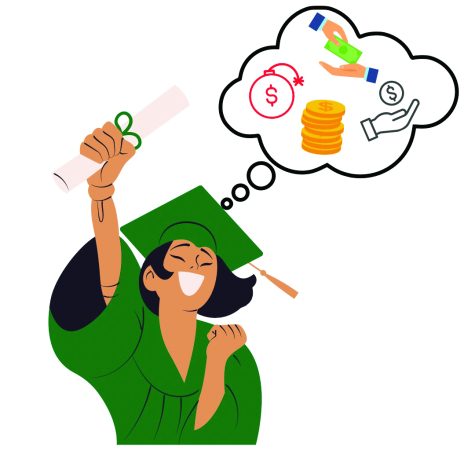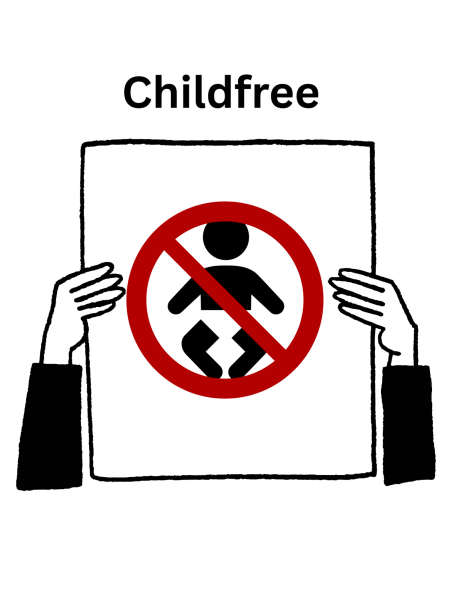Student Loan Forgiveness: What Runners need to know
February 10, 2023

Since 2020, college enrollment rates have decreased significantly, and this will undoubtedly affect our country’s future in the long run. The pandemic has caused an overall decline in young adults pursuing college. Forbes magazine has reported that since 2021, college enrollment rates have declined by 7.4%.
The COVID-19 Pandemic has induced unexpected financial struggles in people worldwide. As businesses and institutions were shut down, many individuals were left unemployed. As a result of the pandemic, our nation is now facing an economic crisis. These consequences have fallen heavily on college students who have felt the impact of an unstable economy and a rise in inflation.
Jason Lane, the Dean at the University of Miami, disclosed to the Herching Report that he believes this decline will make our society “less healthy” and make our economy “less successful” as well.
To help encourage those attending college, on August 24, 2022, President Joe Biden announced that his administration would initiate a loan forgiveness plan for college students. This plan would cancel up to $20,000 of student loans for individuals who received Pell Grants. Additionally, this plan would cancel up to $10,000 worth of loans from students who didn’t attend school on a Pell Grant.
In a debriefing put out by the White House, it stated that President Biden feels education should be a “ticket” to the middle class. However, due to ever-increasing costs, many individuals now see college as more of a financial burden than an opportunity.
The White House’s statement acknowledges that the accumulation of debt among the public will affect our society’s ability to grow and prosper. As a result of an abundance of student loan debt, individuals are struggling to buy property and save for the future.
Despite the disadvantages of low education levels, many people still find the topic to be controversial. Many argued that they had to pay their loans, so it is only fair that current borrowers also have to pay in full. Since the announcement, President Biden has been sued multiple times by states and individuals who disagree with the progression of this initiative, resulting in the program being blocked by the U.S. Supreme Court.
Forbes reported on Jan. 25, that the Supreme Court continues to dismiss most lawsuits that challenge the initiative; however, despite the previous dismissals, the Supreme Court is set to hear two more arguments against the forgiveness plan on Feb. 28. Even though the Biden-Harris administration is facing a lot of backlash for this plan, they continue to rally behind it by emphasizing their confidence in the program.
On Jan. 28, the White House released a statement pertaining to the forgiveness plan that read, “These borrowers could be benefitting from the administration’s program right now were it not for lawsuits brought by elected officials and special interests.” This illustrates how elected officials have been persistently obstructing this initiative.
Senator Pat Toomey referred to this plan as a “scheme.” He believes this plan will increase the cost of education, instead of lowering it. This sentiment is shared by other politicians, such as Senator Mitch McConnell, who stated that this plan was a “slap to the face” for Americans who have already repaid their debt.
People against the loan forgiveness plan also seem to focus on the idea that because they had to pay their loans, so should new borrowers. They fail to realize that in a recent report by the College Board, it was revealed that the cost of attending college has nearly tripled since the ‘80s.
These arguments are absurd when considering that it is a politician’s job to stand for the public’s best interest. These politicians claim to stand for the working class, yet they continually widen the gap between classes. Additionally, it is hypocritical for Republicans to stand against loan forgiveness when many GOP members, such as House Representative Vern Buchanan, received over $2 million dollars in loan forgiveness.
For now, President Biden has temporarily extended student loan payments. This will offer current and past students some financial leeway. I believe that the U.S. Supreme Court should lift the block on the student loan forgiveness plan. As our society evolves, we must evolve with it. We must be innovative in dealing with these unforeseen circumstances. The student loan forgiveness plan is not something we have done before; however, that does not mean it can’t be done. We cannot ensure the stability of our country if our government continues to be divided on subjects such as this.






